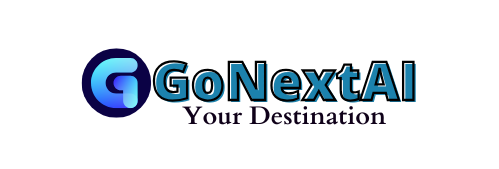Ethical Challenges of AI in Daily Life
Artificial Intelligence (AI) has rapidly integrated into our daily lives, transforming how we work, communicate, and make decisions. From voice assistants like Siri and Alexa to sophisticated algorithms driving personalized recommendations on Netflix, AI has become a cornerstone of modern convenience. However, alongside its numerous benefits, AI poses several ethical challenges that need urgent attention to ensure equitable, responsible, and transparent usage.
The Rise of AI in Everyday Life
AI has penetrated almost every aspect of daily life. Smart home devices manage energy consumption, predictive algorithms optimize healthcare outcomes, and autonomous vehicles promise safer commutes. While these advancements are revolutionary, they raise pressing ethical concerns related to privacy, bias, accountability, and societal inequality.

1. Privacy Invasion
AI systems often require vast amounts of data to function effectively. Social media platforms, fitness trackers, and smart devices collect user data to improve services. However, this data collection raises critical questions:
- Informed Consent: Many users remain unaware of the extent to which their data is collected and shared.
- Data Security: The potential for data breaches compromises sensitive personal information.
- Surveillance Concerns: Governments and corporations could misuse AI technologies for intrusive surveillance, eroding privacy.
For example, facial recognition systems, while useful for security, can easily be exploited for mass surveillance without public knowledge or consent.
Earn Passive Income by Licensing AI Solutions
2. Bias and Discrimination
AI systems are only as good as the data they are trained on. If the data contains biases—intentional or unintentional—AI will replicate and even amplify these biases. Some real-world examples include:
- Hiring Algorithms: AI-driven recruitment tools have been shown to favor certain demographics, excluding others based on gender or ethnicity.
- Predictive Policing: Algorithms designed for crime prediction have disproportionately targeted minority communities.
Addressing bias in AI requires transparency in data sourcing and a commitment to diversity in datasets.
Selling AI-Generated Templates for Passive Income
3. Accountability and Transparency
Who is responsible when AI makes a mistake? This question underscores one of the most significant ethical challenges of AI in daily life. Examples include:
- Autonomous Vehicles: In the case of accidents, determining liability—whether it lies with the manufacturer, software developer, or user—is complex.
- Medical Diagnosis Tools: When AI misdiagnoses a patient, accountability becomes blurred.
To address these issues, AI systems must be designed with clear accountability frameworks and explainable models that allow users to understand their decision-making processes.
4. Job Displacement and Economic Inequality
AI has the potential to disrupt labor markets by automating tasks traditionally performed by humans. While this improves efficiency, it also risks:
- Widening Inequality: Low-income workers in repetitive jobs are most at risk of displacement.
- Skill Gaps: Rapid technological advancement may leave a significant portion of the workforce unprepared.
Governments and organizations need to invest in reskilling programs and create policies that balance technological progress with societal welfare.
5. Misinformation and Deepfakes
The rise of AI-generated content, such as deepfakes and sophisticated chatbots, presents new challenges in distinguishing truth from falsehood. Ethical issues include:
- Erosion of Trust: Manipulated videos and images can be used for propaganda or defamation.
- Impact on Democracy: AI-driven misinformation campaigns threaten fair elections.
Promoting digital literacy and implementing regulations for AI-generated content are essential steps to combat these issues.
How to Start a Career in AI Development
6. Access and Inclusivity
The benefits of AI are not equally distributed. Marginalized communities often lack access to AI-driven tools and technologies. Ethical considerations include:
- Digital Divide: Limited internet access and technological literacy hinder equitable AI adoption.
- Cultural Bias: AI systems designed in specific cultural contexts may not cater to global needs.
Ensuring inclusivity in AI development and deployment is crucial to bridging these gaps.
Addressing Ethical Challenges
Addressing the ethical challenges of AI in daily life requires a multi-faceted approach:
- Policy and Regulation: Governments must establish robust frameworks that govern AI usage, ensuring accountability and fairness.
- Ethical AI Development: Developers must prioritize transparency, fairness, and inclusivity during the design phase.
- Public Awareness: Educating the public about AI’s capabilities and limitations empowers users to make informed decisions.
- Global Collaboration: International cooperation is essential for creating standards and addressing cross-border ethical concerns.
How AI Can Help You Dominate the Gig Economy
The Road Ahead
AI has the potential to revolutionize society, but its ethical challenges cannot be ignored. By addressing issues like privacy, bias, and accountability, we can pave the way for responsible AI that benefits everyone. Striking a balance between innovation and ethics is key to ensuring that AI enhances daily life without compromising fundamental values.


1 Comment